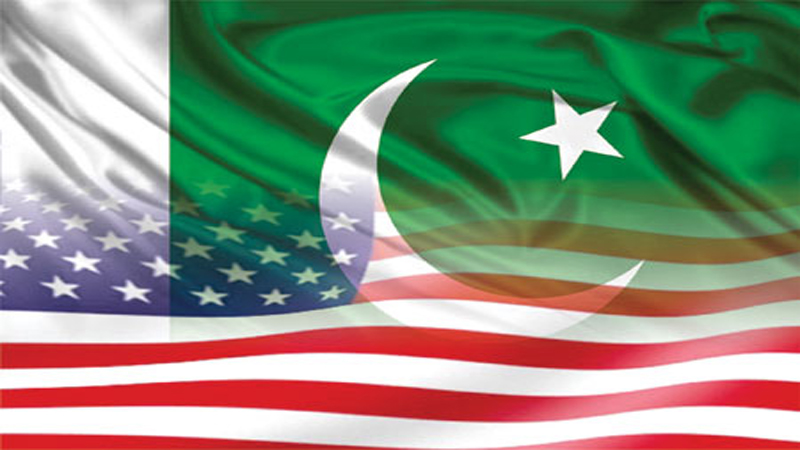The intricate web of US-Pakistan relations is one that continues to evolve, shaped by mutual security concerns yet constrained by diverging strategic interests. The recent remarks by senior White House officials underscore three critical themes: recognition of Pakistan’s sacrifices, its dual challenges in combating terrorism, and the limited role it plays in the US’s broader geopolitical strategy. Together, these themes offer a nuanced understanding of why this relationship remains transactional rather than transformational.
Over the years, Pakistan has paid a heavy price in the global fight against terrorism. From devastating terrorist attacks to cross-border violence, the country has borne a significant human and economic cost. White House official John Kirby’s recognition of Pakistan’s sacrifices reflects the US’s appreciation of these efforts, but it stops short of elevating the partnership to a strategic alliance.
Kirby’s acknowledgment that “Pakistani people fall victim to terrorist violence” highlights the shared security challenges faced by both nations. However, the absence of a formal defense pact or treaty is a telling sign of the limited trust and alignment between the two.
For Pakistan, this raises a critical question: despite decades of collaboration, why is the country still seen as a “partner” rather than an “ally”? This dynamic reveals a broader reality in US-Pakistan relations. While the US values Pakistan’s contributions, it perceives them as situational rather than foundational to its global strategy. For Pakistan, this transactional view can be frustrating, particularly given the immense sacrifices it has made.
One of the most poignant elements of this relationship is the dual challenges Pakistan faces. On one hand, the country contends with terrorist threats emanating from Afghanistan, including groups like ISIS-K and the Tehreek-i-Taliban Pakistan (TTP).
On the other hand, it struggles with the internal ramifications of cross-border violence and extremism. Pakistan’s geographical location has made it a critical player in South Asia, but it has also left it vulnerable to being a battleground for competing interests. The volatile Afghanistan-Pakistan border remains a hotspot for terrorist activities, with groups exploiting the region’s instability.
The US has acknowledged Pakistan’s role in combating these threats, as seen in Kirby’s statement about the long history of collaboration in addressing terrorism along the Afghanistan-Pakistan spine. Yet the burden on Pakistan is immense. Not only must it address external threats, but it must also deal with the internal repercussions of terrorism—political instability, economic losses, and societal trauma.
The US’s acknowledgment of these challenges is important, but it does little to address the root causes or offer tangible support for Pakistan to manage these issues effectively.
Perhaps the most striking aspect of US-Pakistan relations is the limited role that Pakistan plays in the US’s broader geopolitical strategy. Despite being a frontline state in the war on terror, Pakistan is still seen as a “partner” rather than a key strategic ally.
This distinction is not just semantic; it reflects the broader priorities of US foreign policy. The US’s focus on counterterrorism in South Asia has often overshadowed the potential for broader engagement with Pakistan. Economic partnerships, developmental assistance, and long-term strategic alignment have taken a backseat to the immediate goal of combating terrorism.
This narrow focus not only limits the scope of the relationship but also reinforces the perception that Pakistan’s role is supplementary rather than central. For Pakistan, this limited role is a double-edged sword. On the one hand, it highlights the country’s importance in addressing regional security challenges. On the other hand, it underscores its inability to leverage this importance into a more significant partnership.
The lack of a formal treaty or alliance speaks volumes about the US’s reluctance to fully embrace Pakistan as a strategic partner.
As Pakistan continues to grapple with terrorism and its broader implications, it must reassess its role in the global counterterrorism narrative. The US’s recognition of Pakistan’s sacrifices is meaningful, but it must translate into tangible support and a broader partnership. Similarly, the US must acknowledge that Pakistan’s challenges are not limited to counterterrorism but are deeply rooted in regional instability and internal vulnerabilities.
For this relationship to evolve beyond its transactional nature, both nations need to expand their focus. For Pakistan, this means diversifying its partnerships and reducing its reliance on the US. For the US, it means viewing Pakistan not just as a partner in counterterrorism but as a nation with the potential to contribute to regional stability and development.
In the end, the US-Pakistan relationship remains a complex dance of mutual need and cautious distance. The recognition of sacrifices, dual challenges, and a limited role are all pieces of a puzzle that, if completed, could lead to a more balanced and enduring partnership. Until then, the relationship will remain a delicate balancing act shaped by shared challenges but constrained by divergent priorities.


